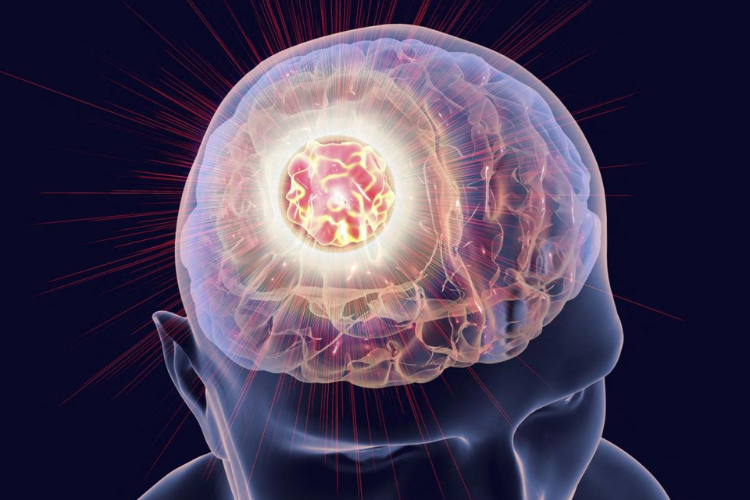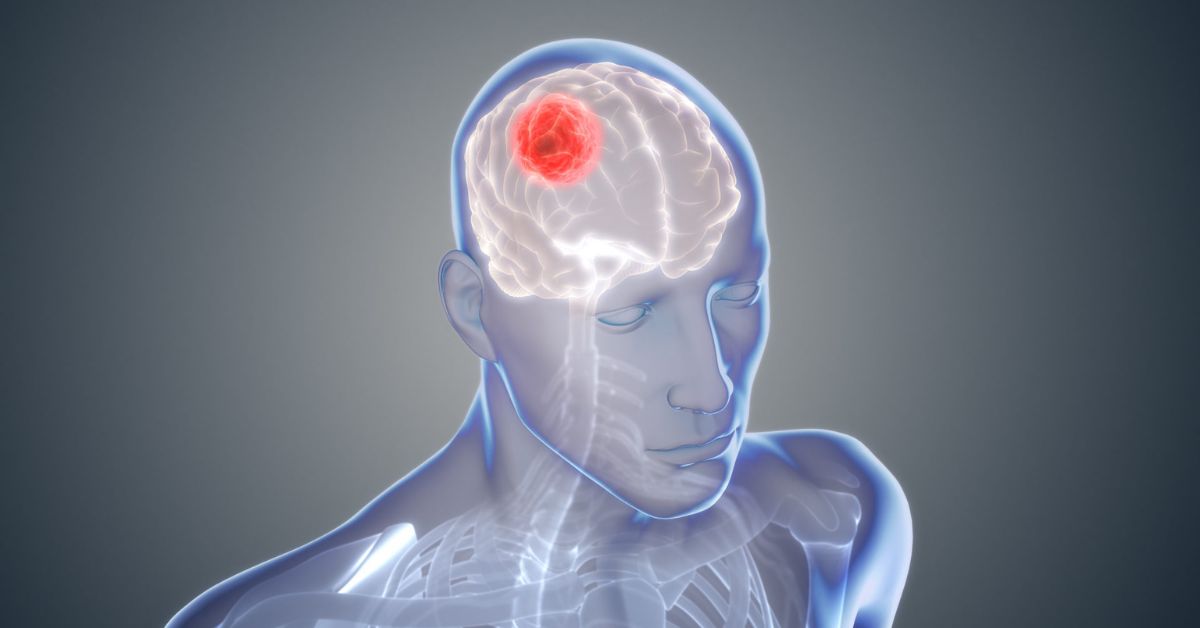Brain cancer misdiagnosis is far more common than the average person might realize. Brain cancer has very subtle early symptoms that may lead to incorrect diagnosis, lost time, and delayed treatment. Many survivors look back at symptoms they dismissed as stress or migraines, that turned out to be symptoms of something far worse. We need to shed light on missed signs.
When Symptoms Lie: Common Signs Lead to Brain Tumour Misdiagnosis

Brain cancer is elusive in its early stages because its symptoms often mimic far less severe conditions. From headaches and fatigue to anxiety or poor concentration, these signs are commonly attributed to everyday stress. Proactive awareness and cancer survivor wellness tips can empower individuals to press for further testing when symptoms persist.
The brain controls a vast range of functions; hence, when something goes wrong, the effects can manifest as physical, emotional, or psychological changes. Unfortunately, misdiagnosis of brain tumors is widespread among younger patients, where the conditions may not immediately raise red flags.
Warning Signs We Miss: A Look at Brain Tumour Misdiagnosis
Many early warning signs of brain cancer mimic unrelated conditions. From mental health misdiagnoses to eye disorders, these symptoms often mask the tumor’s progression. Learning to recognize the red flags can empower patients to push for further investigation.
1. Headaches That Don’t Go Away
Persistent headaches are one of the most overlooked symptoms. Unlike stress or tension headaches, these often worsen over time and resist common treatments.
- Headaches often worsen in the morning.
- Pain may increase with coughing or physical activity
- No relief from over-the-counter medications
- Often linked to brain cancer misdiagnosis due to similarity with migraines
2. Chronic Fatigue or Lethargy
Endless tiredness that doesn’t improve with rest can be a warning sign. Fatigue may stem from disrupted brain activity or tumor pressure.
- Feeling foggy or mentally drained
- Struggling with daily routines
- Falling asleep during normal activities
- Fatigue is often misattributed to lifestyle habits
3. Mood Changes or Personality Shifts

One of the most commonly mistaken signs, mood swings or behavioral changes, can easily be viewed through a mental health lens.
- Sudden irritability or aggression
- Loss of interest in previously enjoyed activities
- Increased anxiety or paranoia
- Can result in brain tumour misdiagnosis as a psychiatric disorder
4. Vision Problems or Blurred Sight
A tumor pressing on the visual cortex can cause gradual sight issues that resemble eye strain or aging.
- Sudden blurry vision or double vision
- Loss of peripheral vision
- Visual distortions during activity
- Often leads to brain cancer misdiagnosis as an eye condition
5. Seizures in Adults
Adult-onset seizures are a critical red flag. Even one unexplained seizure should prompt immediate neurological testing.
- Sudden muscle twitching or jerking
- Short periods of lost awareness
- Unexplained falls or collapses
- Easily misdiagnosed as epilepsy or fainting
6. Balance and Coordination Issues
Balance problems can arise when tumors affect the cerebellum. These signs are often confused with inner ear disorders.
- Trouble walking in a straight line
- Dizziness or vertigo
- Frequent falls or clumsiness
- Can lead to brain tumour misdiagnosis due to similarity with vestibular issues
Anxiety to Alzheimer’s: Common Culprits Behind Brain Cancer Misdiagnosis

The nonspecific nature of brain tumor symptoms causes them to be misattributed to several more common and benign conditions. Understanding these misdiagnoses helps patients ask the right questions early.
1. Migraines or Tension Headaches
Recurring headaches are frequently seen as migraines rather than warning signs of a tumor.
- Lack of proper imaging before diagnosis
- Reluctance to escalate to a specialist
- Missed link to brain cancer misdiagnosis in early cases
2. Depression or Anxiety Disorders
Emotional or behavioral changes are often treated as mental illness without a full neurological workup.
- Symptoms treated with therapy or antidepressants
- The underlying cause remains unexamined
- Can delay the correct diagnosis by months
3. Stroke or Transient Ischemic Attacks (TIAs)
Sudden neurological issues can mimic strokes, particularly when involving speech or movement.
- Slurred speech or numbness
- Temporary paralysis or facial drooping
- Can lead to brain tumour misdiagnosis when scans aren’t conclusive
4. Dementia or Alzheimer’s Disease
Cognitive decline in older adults is often blamed on aging rather than a growing tumor.
- Early memory loss is accepted as normal
- Missed opportunity for brain scans
- Cognitive tests fail to reveal the root cause
5. Inner Ear or Vestibular Disorders
When balance or hearing is affected, ENT-related diagnoses take priority.
- Dizziness misdiagnosed as vertigo
- Balance issues are mistaken for an ear infection
- Missed link to brain cancer misdiagnosis when an MRI isn’t conducted
Second Opinions Save Lives: Avoiding the Trap of Brain Tumour Misdiagnosis

If you are having ongoing symptoms that are not improving with treatment, it’s time to consider whether the original diagnosis was correct. Second opinions are valuable because they provide different tests, experience, and, when appropriate, imaging studies that reveal what others may have missed.
- Symptoms have endured for over 3 months
- Treatments are not working
- Symptoms are developing or are occurring more often
- You are beginning to feel that concerns are not being taken seriously
Even subtle signs should not be ignored. Pairing movement, like the best home exercises for cancer survivors, with self-awareness and ongoing medical engagement can promote early detection and faster diagnosis.
Voices That Matter: Advocacy Is Driving Early Detection in Brain Health
When to speak up can be critical. Patients and their loved ones must demand imaging or specialist referrals for persisting symptoms. Many survivors were only diagnosed after requesting a second scan.
- Keep a Symptom Diary
- Track changes, triggers, and frequency within a timeline to identify patterns.
- Ask for a Neurological Evaluation.
- Neurologists are experts in the complexity of the brain.
- Insist on imaging when symptoms persist.
- An MRI or CT Scan is necessary to eliminate severe conditions.
- Don’t accept “It’s just stress.”
- Be persistent if you feel something more profound is happening.
- Learn about Brain Tumour Misdiagnosis
- Understanding the statistics can provide some confidence in your advocacy.
Bottom Line: Awareness Saves Lives
Every year, thousands encounter a brain cancer misdiagnosis that prevents them from getting the care that they need. By helping everyone understand that some symptoms may overlap with more common conditions, we are equipping them to ask better questions and take charge of their health.
No one knows your body better than you. If it doesn’t feel right, keep looking for answers. It may take time to gain clarity, but the sooner you take action, the more likely you are to obtain better results and much more promising outcomes.
Your voice matters. Don’t wait, advocate for your health today.
Frequently Asked Questions (FAQs)
What can be mistaken for a brain tumor?
Conditions like migraines, anxiety, dementia, and inner ear disorders can mimic brain tumor symptoms and delay correct diagnosis.
How often are brain tumors misdiagnosed?
Studies show up to 44% of brain tumors are initially misdiagnosed, especially when symptoms resemble more common conditions.
Why do brain tumors get confused with migraines?
Because both can cause recurring headaches, nausea, and sensitivity to light, doctors may assume migraines without further testing.
Can personality changes be a symptom of brain cancer?
Yes. Behavioral or emotional shifts may be early warning signs of a tumor affecting the brain’s frontal lobe.
What tests can help avoid brain tumour misdiagnosis?
MRI, CT scans, and neurological evaluations are crucial tools to confirm or rule out a brain tumor diagnosis.






